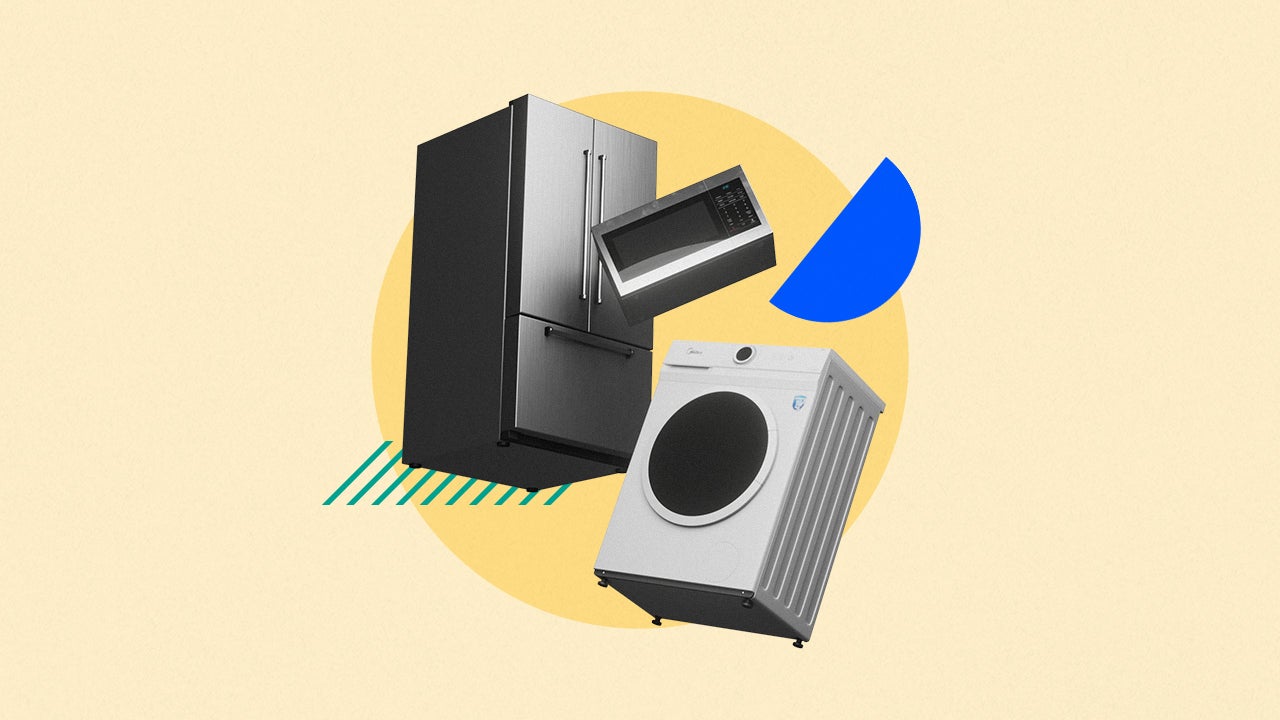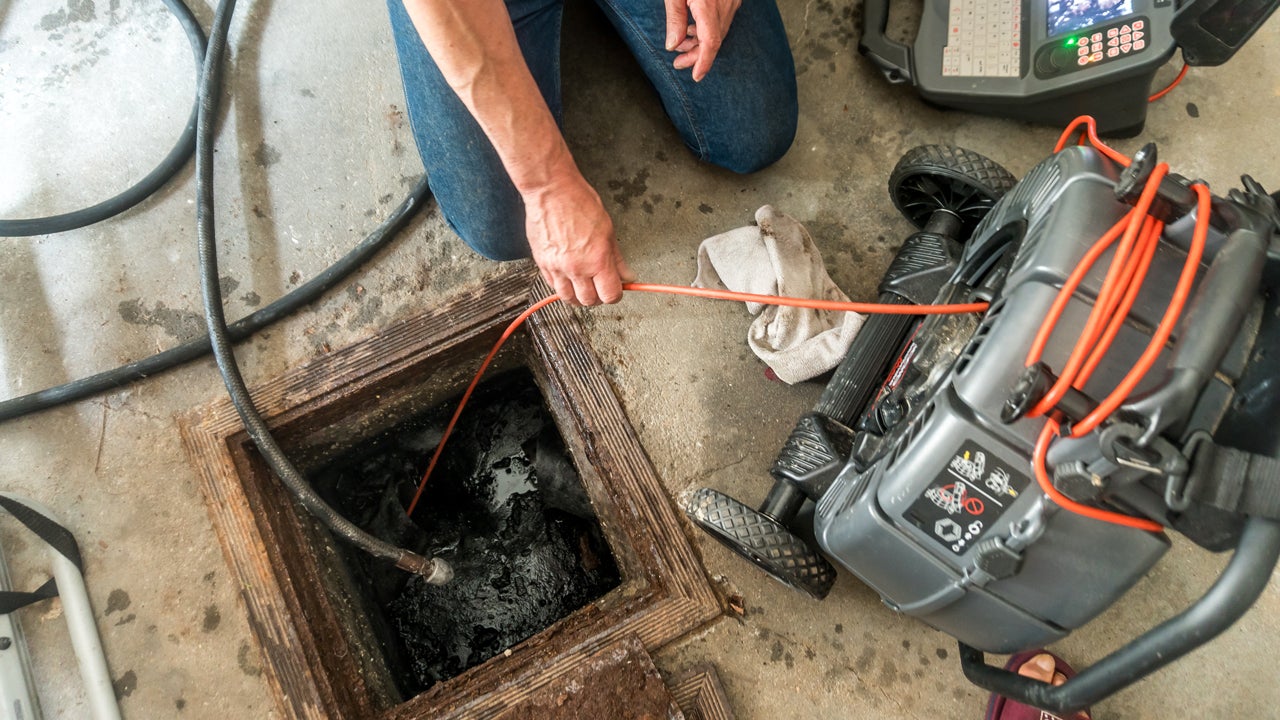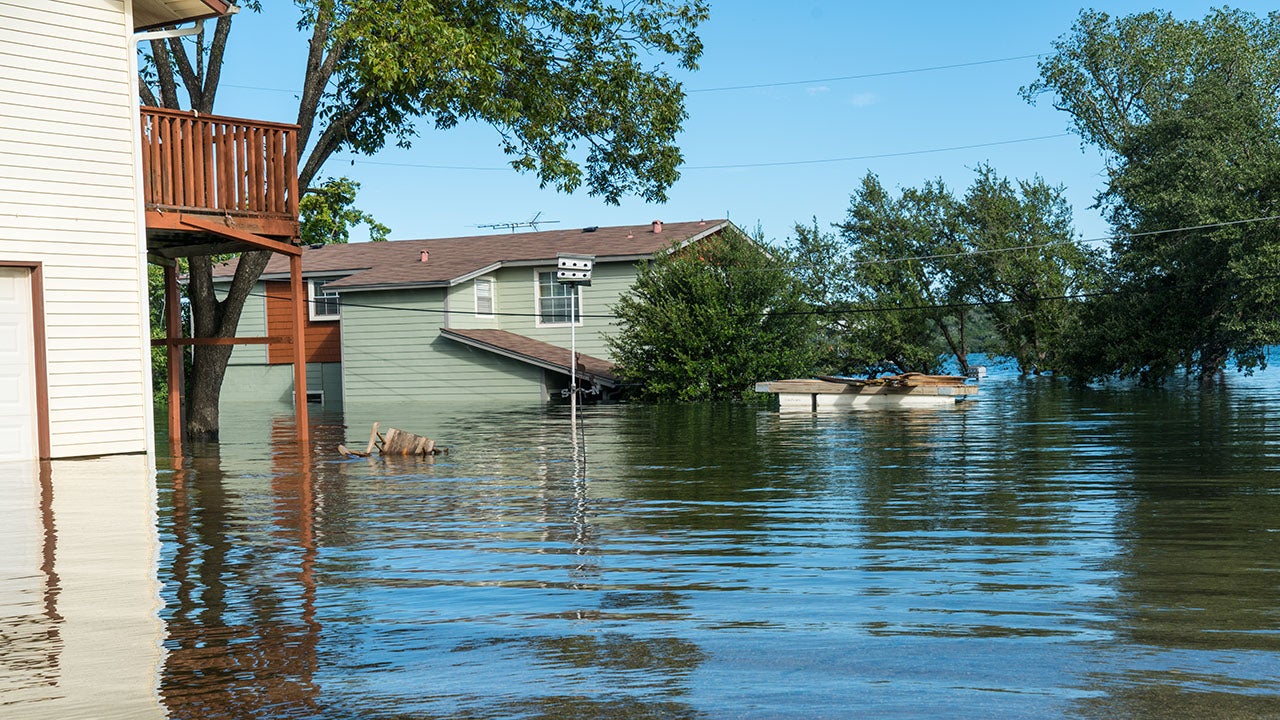Does homeowners insurance cover basement flooding?

Home insurance doesn’t always cover basement floods. Although floods are the most common natural disaster in the country, flooding is not included in your home insurance coverage. To be financially protected from floodwaters, you’ll need a separate flood insurance policy. However, there are some rare instances in which your home — not flood — policy could help pay for a basement flood.
Key takeaways
- Home insurance can cover a flooded basement, but it will depend on the source of the flooding.
- Your policy likely includes coverage if your basement floods due to a burst pipe, appliance leak or water damage from putting out a fire.
- Flood damage is excluded from home insurance. Meaning, if your basement floods due to heavy rains or overflow from a nearby body of water, your repair expenses won’t be covered by your insurance policy.
- A home insurance policy also won’t cover a flooded basement if damage stems from homeowner neglect or lack of maintenance.
When does homeowners insurance cover basement flooding?
It largely depends on the source of the flood. If the flood was triggered by something covered by your policy, you might be able to file a successful claim. There are three main scenarios in which your home insurance policy could cover a basement flood:
- A burst pipe or water heater: When it comes to water damage, home insurance is limited to things that are “sudden and accidental,” like a burst pipe.
- A sudden appliance leak: If there are appliances in your basement, like a washing machine, fridge or air conditioning unit, those appliance leaks may be covered by your policy.
- Water damage following a fire: Extinguishing a home fire could create water damage. In that case, if your basement floods, your insurance policy will likely help with the repair costs.
For these repairs to be covered, you’ll likely need to meet a few criteria. You’ll need to have been living in the home when the damage occurred (it’s fine if you were out running errands when your basement flooded, so long as you use your home as your primary residence).
Your home must also have been kept at a reasonable temperature. If you left for a winter weekend trip, kept the heat off and had a pipe burst, your home insurance company will likely deny your claim. Similarly, you’ll need to prove to your insurance company that you took the right steps to properly maintain your home; basement floods that stem from lack of home maintenance won’t be covered.
Learn more: What does homeowners insurance cover?
When does homeowners insurance not cover basement flooding?
The cases where home insurance covers basement flooding are fewer than the cases where it doesn’t. Most of the time, you’ll be out of luck if your basement floods and you don’t have a flood insurance policy. This includes:
- Natural flooding: Flooding from hurricanes, heavy rains, snow melt, runoff or other extreme weather-related causes is excluded from your usual home insurance coverage.
- Sump pump failure: Standard homeowners insurance policies generally exclude water that backs up through sewers or drains or overflows from a sump pump.
- Sewer backup: If the flooding is the result of an external sewer backing up, involving outside pipes that may not even be on your property, it typically will not be covered.
- Ground seepage: Homes with cracked foundations or those built on top of ground with high water tables may experience basement flooding due to seepage. Water seeping into your basement because of cracks in your foundation or poor landscaping drainage is not usually covered by homeowners insurance, as it’s usually seen as a maintenance issue.
- Homeowner neglect: Damage caused by neglect or lack of maintenance is not covered by homeowners insurance. This includes things like old, rusty pipes that burst or leak, or aging appliances that fail. As the homeowner, it’s your responsibility to keep on top of potential sources of damage before they happen.
Learn more: Extreme weather’s financial effect on homeownership
What coverage types will cover basement flooding?
Although home insurance excludes basement flooding on its own, there are extra coverage types you can purchase to cover this kind of loss. While endorsements (think of endorsements as add-on coverages) will increase the cost of your policy, they may be worthwhile for the added level of financial protection. Speaking to a licensed agent can help you better evaluate your basement’s flood risk, and which coverages you may need. Here are some common ones:
- Flood insurance: Flood insurance comes as a separate policy, usually through the NFIP or a private insurer. If your home is in a flood zone, you have repeated problems with flooding or you feel your property is at risk of flooding, you may want to strongly consider purchasing a flood insurance policy. It may even be required by your mortgage company.
- Water backup coverage: This is an optional coverage that can be added to your primary homeowners policy. It is designed to cover you for water damage caused by a drain or sump pump backup.
- Service line coverage: Service line coverage is an endorsement that covers utility pipes, like water and sewer lines, if they cause damage to your home. This endorsement may be beneficial, as damage to utility lines can cause flooding in and around your home.
- Contents replacement cost coverage: If you store personal items in your basement, you might consider adding a replacement cost coverage endorsement to your home insurance policy. Most HO-3 policies cover personal property on an actual cash value basis, meaning you might be left with out-of-pocket costs if basement flooding damages your belongings.
- Equipment breakdown coverage: If your washing machine breaks and floods your basement, the flood damage will typically be covered, but the cost of a new washer will not be. Equipment breakdown coverage pays to repair or replace home appliances and systems if they malfunction unrelated to a covered peril.
How to mitigate basement flood risk
Basement flooding poses a significant risk to homeowners, causing damage to property and potentially leading to costly repairs while rendering part of your home uninhabitable. There are some proactive measures homeowners can take to mitigate this risk and safeguard their basements from flooding and minimize the likelihood of damage from excess water.
Here are some key steps to reduce basement flood risk:
- Ensure proper grading around the foundation to direct water away and prevent pooling.
- Install and maintain a functional sump pump system to remove excess water.
- Seal cracks in the foundation walls to prevent water seepage.
- Direct gutter downspouts away from the foundation and extend them to ensure proper drainage.
- Consider installing a backwater valve to prevent sewage backup during heavy rainfall.
Frequently asked questions
Why we ask for feedback Your feedback helps us improve our content and services. It takes less than a minute to complete.
Your responses are anonymous and will only be used for improving our website.
You may also like

Does homeowners insurance cover appliances?

Does homeowners insurance cover renovations?

Does homeowners insurance cover sewer lines?

Does homeowners insurance cover flooding?


